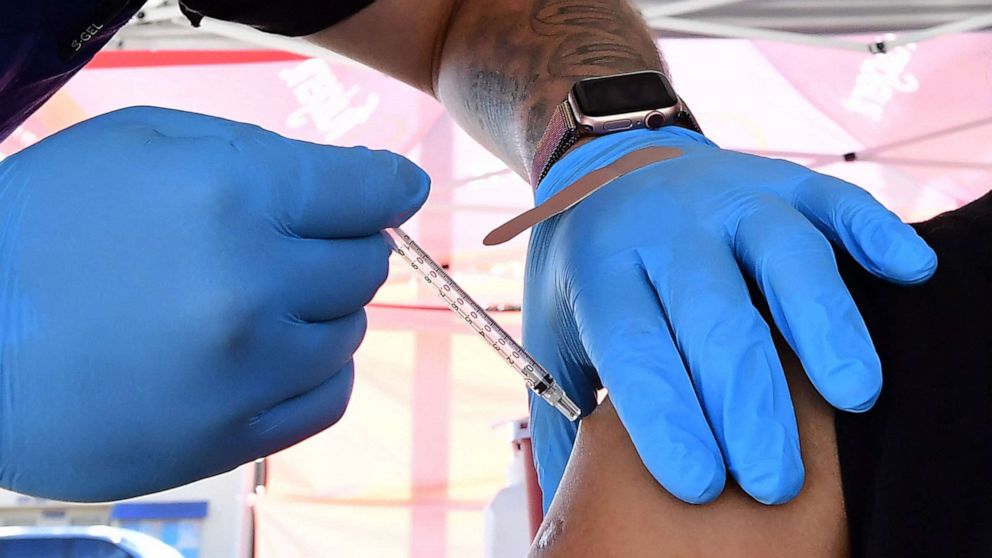FDA authorizes Pfizer COVID-19 boosters for 12- to 15-year olds
The move comes as schools reopen after the holiday break amid the omicron wave.
The Food and Drug Administration on Monday approved Pfizer COVID-19 boosters for 12- to 15-year-olds as schools reopen after the holiday break amid the omicron variant surge.
In a release, the FDA also said it has amended the emergency use authorization for the Pfizer vaccine for the coronavirus to also shorten the time between the completion of primary vaccination of the Pfizer vaccine and a booster dose to at least five months, instead of six, and to allow for a third dose for certain immunocompromised children 5 through 11 years of age.

FDA's leaders said they were confident that boosters for 12-15 year olds will be safe, based on data from Israel on over 6,300 adolescents.
In particular, acting Commissioner Janet Woodcock and the FDA's vaccine chief Peter Marks said the data on myocarditis, an inflammation of the heart that’s rare but has been linked to the mRNA vaccines among young men, is even rarer with the third COVID-19 shot, and particularly rare among this age group.
"We do we expect that would be extremely rare in the third dose and we have the real world evidence from the Israeli experience to to help us with that analysis," Woodcock told reporters on a call Monday.
The risk of myocarditis after a third mRNA vaccine dose to protect against COVID-19 is about one-third of the risk with the second dose, Marks said. And the risk is low to begin with, at about one case in every 10,000 men ages 16-30 who get a two-dose vaccine. About 98% of cases are mild, Marks said, and average hospitalization is around one day.
"In the setting of a tremendous number of omicron and delta cases in this country, the potential benefits of getting vaccinated in this age range outweigh that risk," Marks said.
Marks and Woodcock also explained that the patchwork of booster recommendations the U.S. now has -- get the J&J booster 2 months after the first shot, the Moderna booster 6 months after the second shot, and now, the Pfizer booster five months after the second shot -- are because the FDA is making decisions with the data they have from the companies in real time.
Pfizer submitted data from Israel, where millions of people have received a third dose of Pfizer at five months, and the FDA changed its recommendation based on that data. It will do the same with any other vaccine company that submits it, Woodcock and Marks said.
The Centers for Disease Control and Prevention is expected to review the FDA recommendations and its director, Dr. Rochelle Walensky, must still sign off.
The FDA said some even younger children who are immunocompromised should be eligible to get the boosters as well.
The agency said "children 5 through 11 years of age who have undergone solid organ transplantation, or who have been diagnosed with conditions that are considered to have an equivalent level of immunocompromise, may not respond adequately to the two-dose primary vaccination series."
As for children 5 through 11 years of age who are fully vaccinated and are not immunocompromised, there is no recommendation for COVID-19 boosters yet.
"Last I looked only about 25% of eligible 5-11 year olds had been vaccinated, so it would be great to get a larger percentage of those kid vaccinated and then we'll see how many months afterwards we need to get them boosted," Marks said Monday.
Marks did not provide an update on when vaccines might be authorized for kids younger than five, particularly as the country sees an increase of hospitalization among the unvaccinated.
"We can’t talk about our actions but we can say that we certainly understand that there is a pressing need in that age range, that we understand the hospitalizations that may be occurring in that age range and we will move with appropriate speed with the appropriate data in hand," Marks said.




